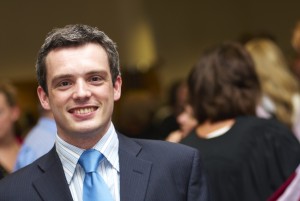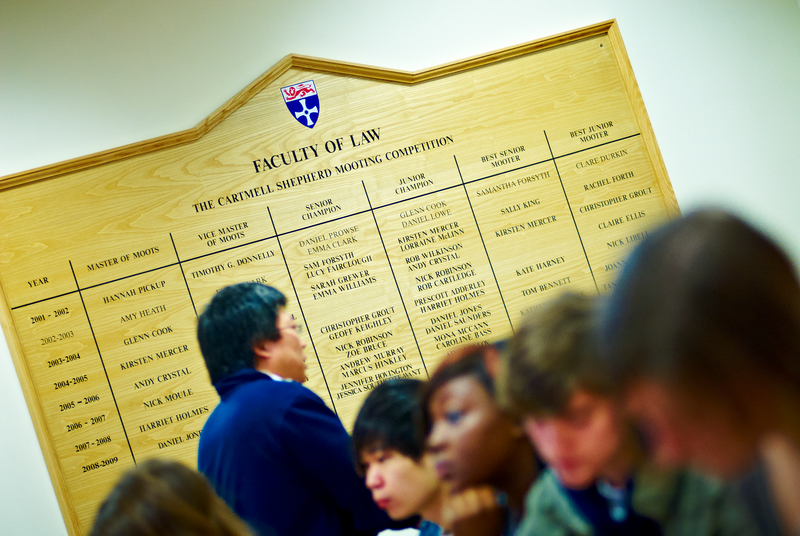Lecturers in the Law School are making use of industry professionals to teach students about ‘real-life’ as a legal professional.
The school makes use of professionals from local practices to assess first year’s interviewing techniques and invites Law Lords and senior judges to meet students in order to help them to establish contacts and feel comfortable in the formal and often cliquey legal world.
Jonathan Galloway, just one lecturer making use of professionals in both law and economics as part of his Competition Law module, thinks that regular contact with those working in the profession gives Newcastle students the edge.
 ‘Not only is it great to hear from someone who can tell you in a more anecdotal sense how the theory you learn about during your degree works in real world situations, it also builds students’ confidence.
‘Not only is it great to hear from someone who can tell you in a more anecdotal sense how the theory you learn about during your degree works in real world situations, it also builds students’ confidence.
‘For many of them, the world of court, particularly places like the supreme court or Parliament can seem completely out of reach. Meeting a senior judge or law lord can help them to feel more comfortable and confident in applying for jobs or placements at these types of places later.
‘For some Newcastle students, they may never have met a barrister or a judge before. Having people who work at some of the most prestigious firms or in the top jobs deliver elements of their courses helps them to see that these sorts of professions are within reach for them and hopefully encourages them to aim high after they graduate.’
For Jonathan, this works both ways: ‘It also works the same way for the firms themselves. Although many of the most prestigious firms in London, they come into regular contact with students from London-based Law Schools, many may not meet many students from Newcastle.
‘Inviting them to speak means that they already have a sense of what Newcastle students are about and how much they could offer their firm as a graduate.’
The Law School makes use of professionals to assess interviewing techniques in the early stages of the degree and to deliver some lectures on modules such as Competition law and Human Rights law.
Although much of this takes place later in the course and Jonathan is keen to stress that students always already have a theoretical grounding in the area which professionals come to discuss, he thinks it is inherently valuable for the students:
‘We’ve had some really excellent people, not just lawyers but economists too to help the students get a more rounded sense of how wide-ranging legal studies is and how many different sectors the law touches upon.’
To read more about what Law is up to see the Case Study Database.
Or if you have an example of really effective teaching practice in your School do get in touch with Katherine.cooper@ncl.ac.uk.

